When crafting a scholarship application reference letter, it's crucial to highlight the candidate's strengths and qualifications in a compelling manner. This letter not only serves as a testament to their capabilities but also personalizes their application, showcasing their potential to succeed. By providing specific examples and positive insights, you can greatly enhance the applicant's chances of securing the scholarship. Interested in learning how to structure your letter to make a lasting impression? Read on for some valuable tips!

Personal Details of Applicant
The personal details of an applicant for a scholarship often include critical information such as full name, date of birth, and contact information. Academic performance is highlighted with GPA scores and standardized test results, often from assessments like the SAT or ACT. In addition, the applicant might provide educational history, detailing previous institutions attended, major fields of study, and any honors received. Extracurricular activities such as volunteer work or leadership roles in clubs can illustrate a well-rounded individual. References, including names and contact information of educators or community leaders, may support the application. Finally, personal statements often reveal goals, aspirations, and motivations for seeking financial assistance, offering insight into the applicant's character and commitment to their academic pursuits.
Academic Achievements and Performance
The academic achievements of high school students can significantly impact their scholarship applications, particularly in programs like the National Merit Scholarship Corporation. Maintaining a GPA above 3.5 on a 4.0 scale demonstrates consistent performance across subjects like Mathematics, Science, and English, which are often weighted in higher education admissions. Noteworthy accomplishments such as AP (Advanced Placement) course completions, SAT scores exceeding 1400, and recognition in academic competitions like Science Olympiad or National Honor Society membership highlight a student's dedication to excellence. Moreover, participation in extracurricular activities, including debate club or student government, showcases leadership skills, complementing high academic performance while enhancing a student's overall profile for scholarships.
Leadership and Extracurricular Involvement
Demonstrating leadership capabilities is vital for enhancing the educational experience at institutions like Harvard University. Participation in extracurricular activities such as debate clubs, student government, and community service initiatives reflects strong commitment to personal growth and teamwork. Students involved in organizations such as National Honor Society or local environmental clubs often develop valuable skills including public speaking and project management. These experiences contribute significantly to a student's ability to collaborate effectively, communicate clearly, and inspire peers. Additionally, leadership roles in sports teams emphasize discipline and resilience, essential traits for future academic and career success. Community service projects undertaken in collaboration with local charities help cultivate a sense of civic responsibility and empathy towards others, further enriching a student's overall profile.
Personal Qualities and Characteristics
Personal qualities such as resilience, adaptability, and integrity are crucial for success in academic pursuits and life challenges. Resilience demonstrates the ability to bounce back from setbacks, exemplified by individuals like Thomas Edison, who endured over a thousand failed attempts before inventing the light bulb. Adaptability showcases one's capacity to adjust to changing circumstances, similar to astronauts who undergo rigorous training to handle unexpected scenarios in space missions, such as the Apollo 13 crisis in 1970. Integrity reflects the commitment to ethical principles, akin to Malala Yousafzai, who bravely advocated for girls' education in Pakistan despite facing life-threatening adversity. These characteristics not only foster personal growth but also contribute positively to community engagement and leadership.
Enthusiasm for Field of Study or Career Goals
The applicant demonstrates exceptional enthusiasm for their field of study, particularly in environmental science. They have actively participated in numerous sustainability initiatives at the local university, such as the Green Campus Project that aims to reduce carbon footprints by 30% by 2025. Their commitment is evident through their internship at the National Park Service, where they contributed to habitat restoration efforts in Yellowstone National Park, a location known for its rich biodiversity. Furthermore, the applicant's engagement in relevant volunteer work with organizations like the Sierra Club showcases their drive for eco-friendly practices and policies. Their goal of pursuing a Master's degree in Environmental Policy reflects a passion for creating lasting change in environmental legislation, focusing specifically on renewable energy solutions to combat climate change. Overall, the applicant embodies the qualities of a dedicated advocate for sustainable development and environmental conservation.
Letter Template For Scholarship Application Reference Samples
Letter template of community service reference for scholarship application
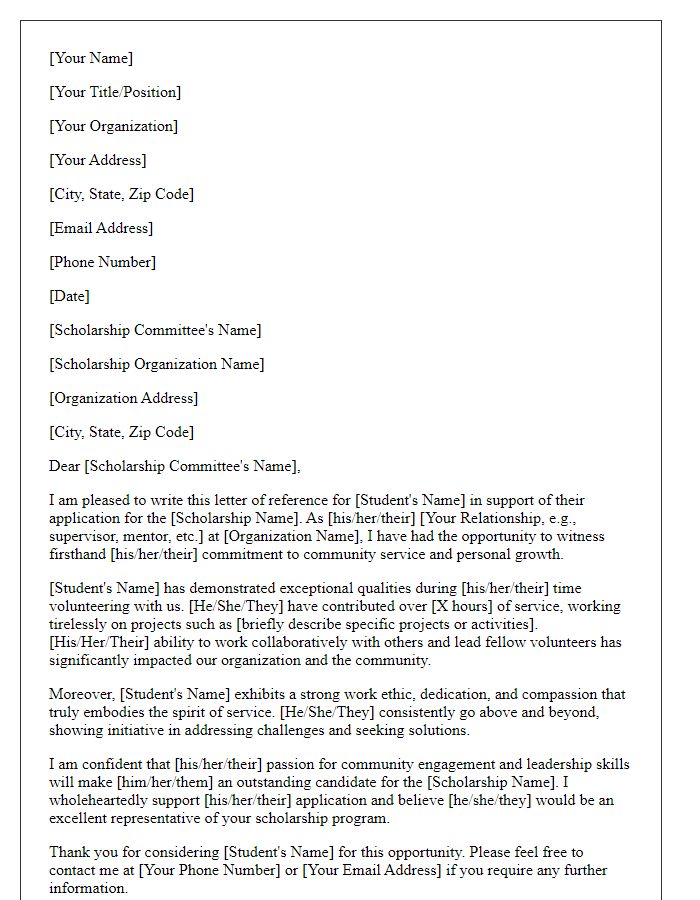

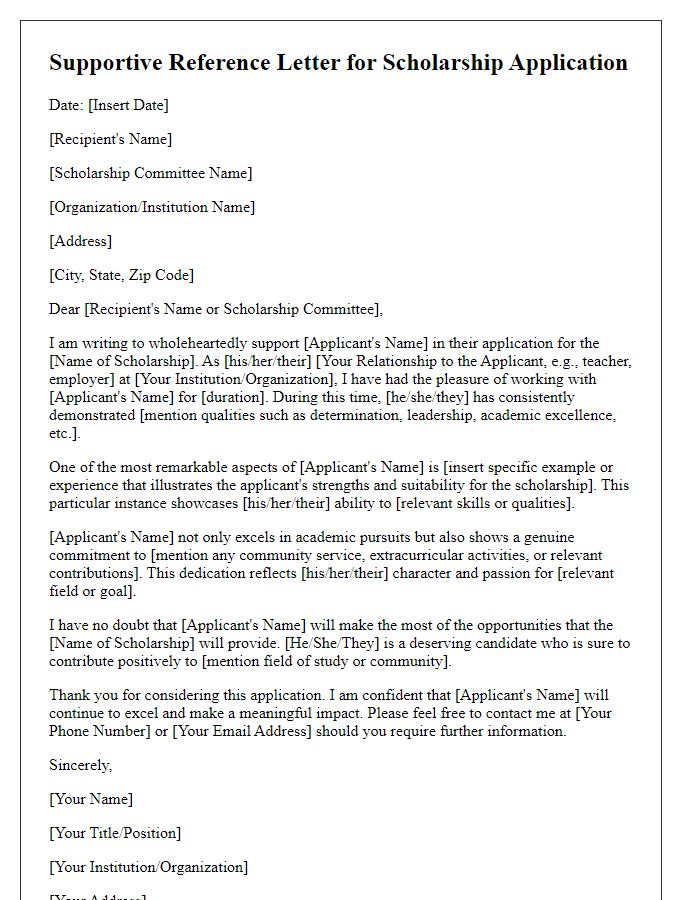
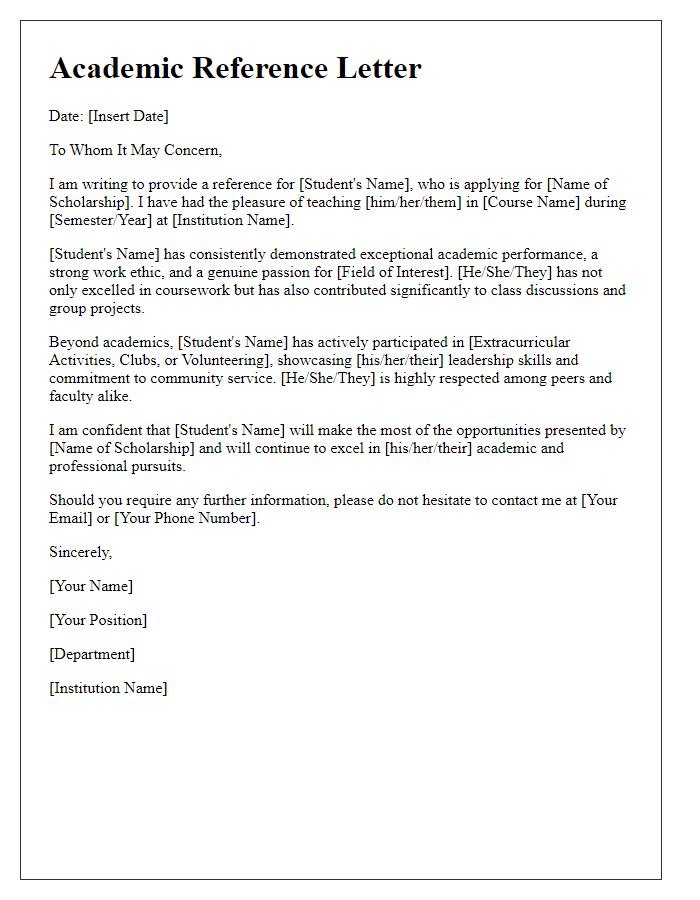
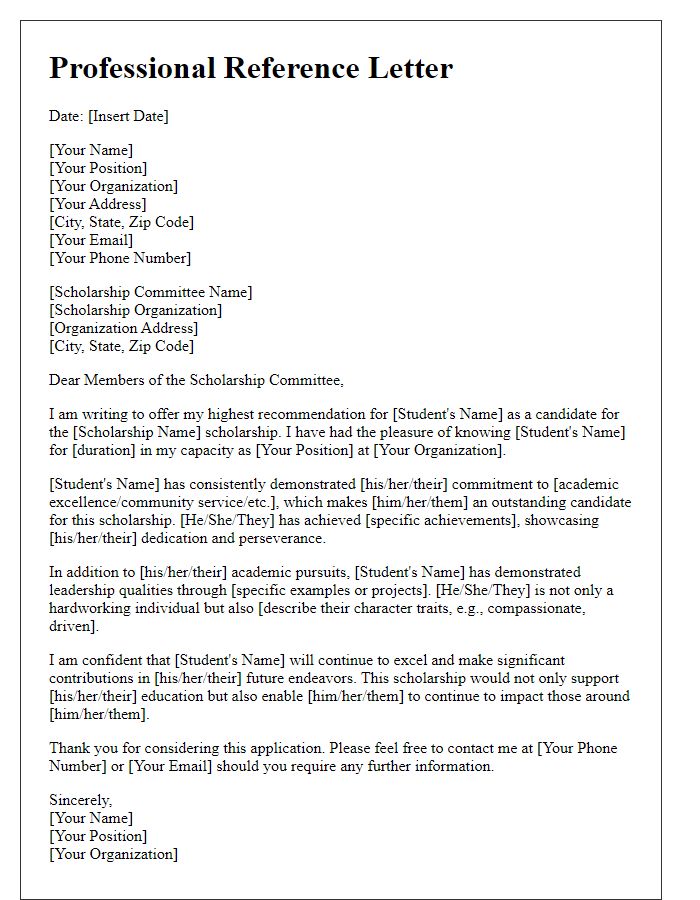
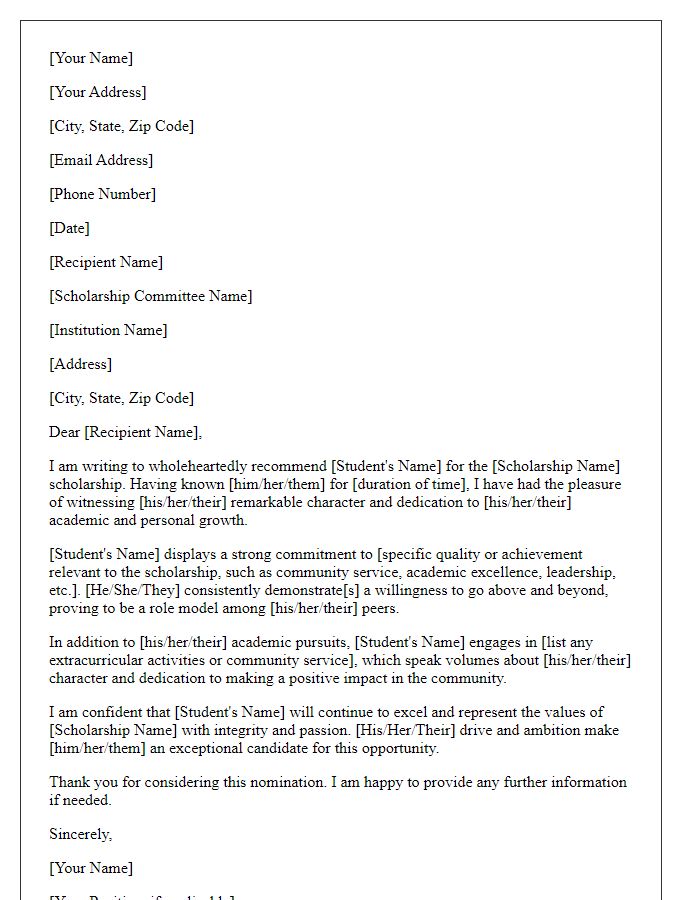
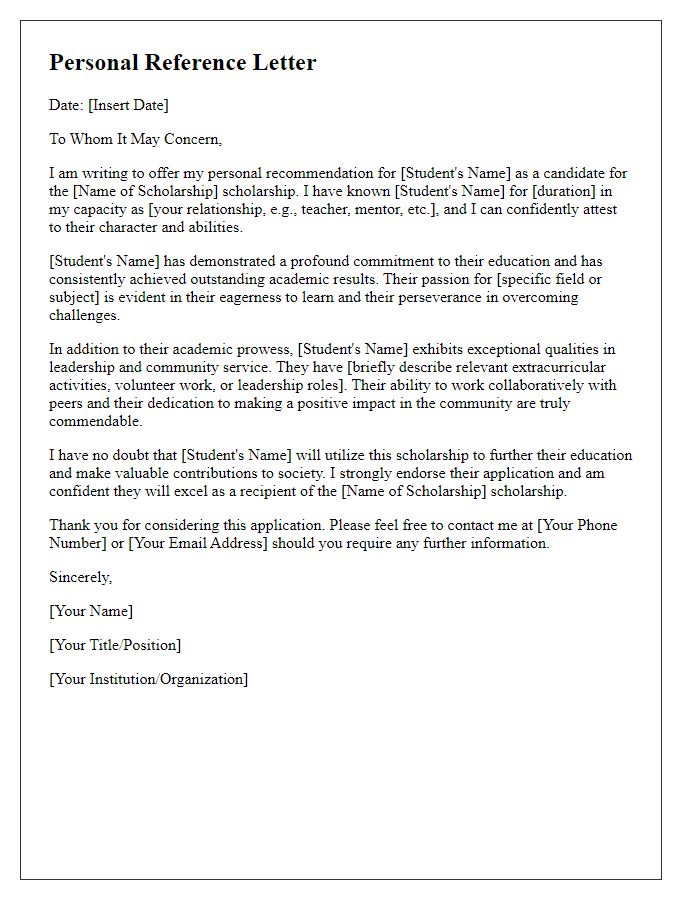
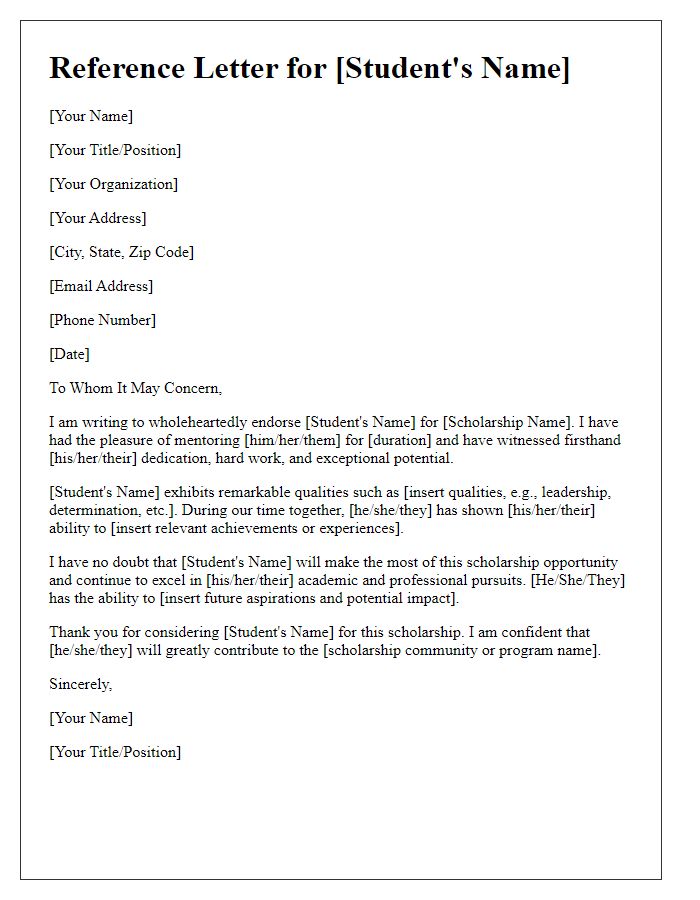
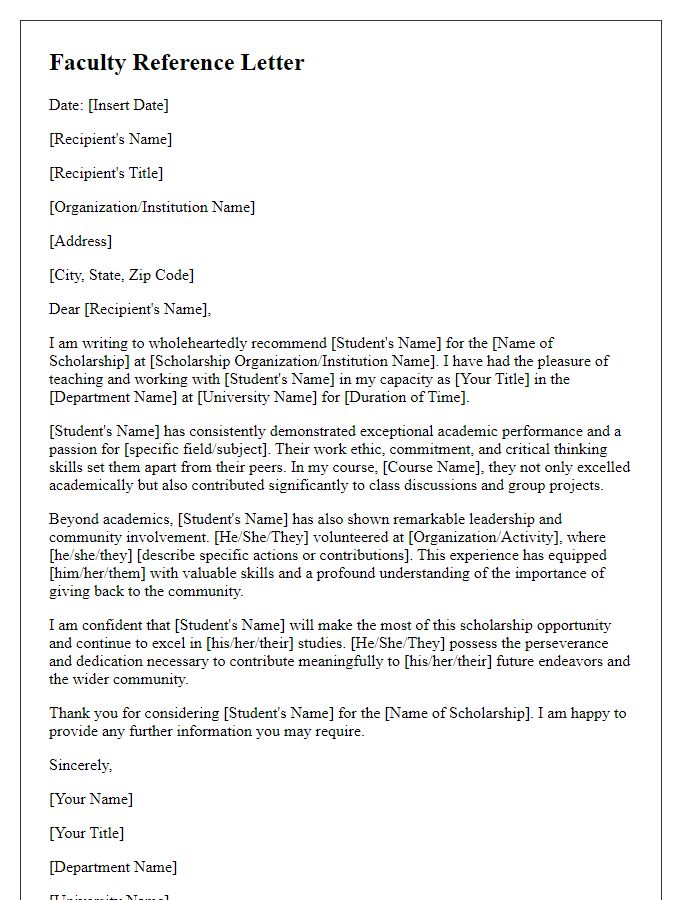
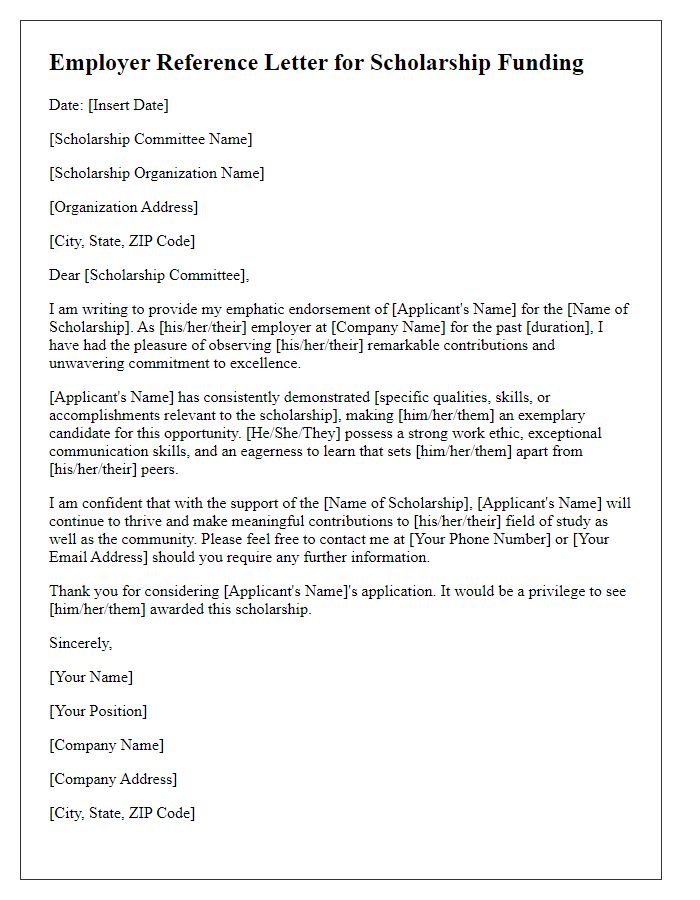
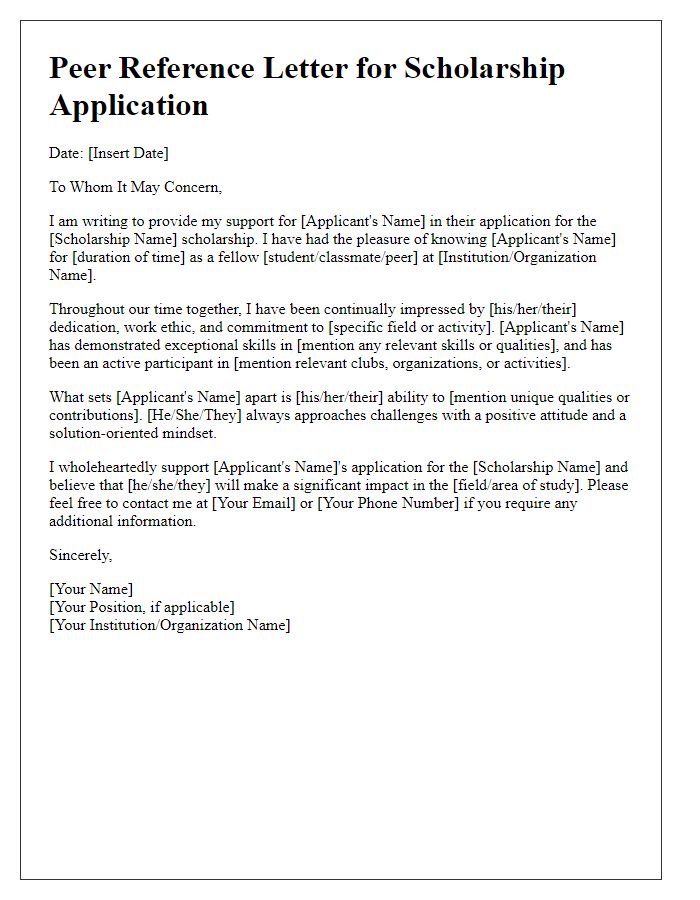


Comments